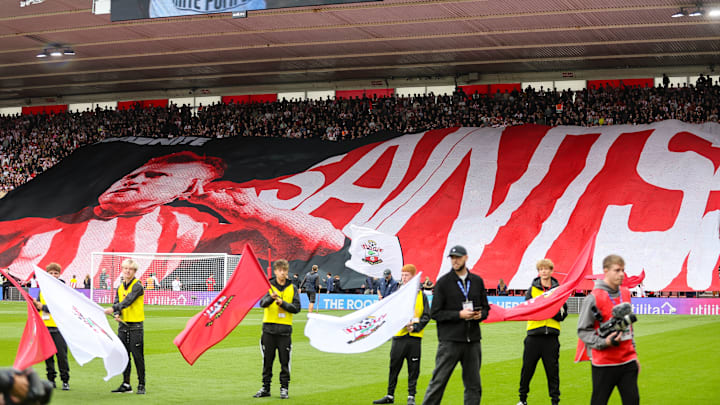It's the same old story. A team performs badly and it's the manager that takes the brunt of the criticism. The fans focus their attention on the board and the manager who asks for more from his players... and the fans.
Will Still has certainly read the script at Southampton. On Thursday in his press conference ahead of Saturday's home match against Preston, he 'insisted' on better support from the fans.
As a Saints fan, that's a hard one to take. Quite frankly the performances away at Bristol City and Blackburn Rovers were so dire that fans would be well within their rights to stay at home today.
What being a Saints fan is all about

But, that's not what being a fan is about is it? Like it, or not, if you're reading this, you're in it for the long haul, through the good and through the bad. You'll make that pilgrimage to St Mary's today; you'll feel the pride but suppress the hope.
“As a club,“ Still told journalists, “we need to turn the corner.“ For that to happen, Still said the players need to take ownership in games and have full control of what they can do themselves to influence games.
Then, bang on cue, Still directed his attention towards the fans. “We need them as well. I really insist on that, we do really need them, and the team needs them. Like I said previously, yes, things are difficult and not everything is perfect.“
Sports psychological theory supports Will Still's plea

Getting behind a team that's playing poorly might be counter-intuitive but the manager does have a point.
To play without fear and take risks requires a player to have the a particular psychological strength. In achievement goal theory, a psychological theory used by sports psychologists, some players avoid achievement opportunities. This is the player who chooses the safe pass or doesn't step up to take a penalty in the shootout - for fear of achievement failure (missing).
Stuart Pearce's shootout penalty for England in Euro 96 is a great example of a player who was able to banish thoughts of failure and avoidance (not taking a penalty for fear of missing). Instead, Pearce's goal-orientation was to approach success (take a penalty) despite knowing what the ramifications might be for him if he missed.
Fans who berate players for making mistakes only serve to compound the problem, according to achievement goal theory. When supporters vent their frustrations, like Saints fans have been doing since 1885, they don't always have the impact that they think they are having on the team.
The value of ultra culture at St Mary's

Still's experience of fan culture in Belgium and France will have been very different to the culture here in England. In those countries, Ultra groups sing loudly and get behind the team throughout the game, irrespective of the performance.
It's not until the match is over that they share their feelings about the team's performance, with the emphasis being on the performance of the team and not individuals.
The closest English fanbase to the ultra culture described above is Crystal Palace. Maybe it's no coincidence that they have been outperforming their potential in recent seasons. Something deep within the writer's soul is triggered.*
On the whole, Still is absolutely correct in his assessment of what he needs from the fans. “Let's just get behind a football team and push and be positive.“
“I know it's easy to be negative. We can all be negative, and we can all blame each other. But I think it's probably gone a bit too far in the wrong direction.“
* Some Southampton fans may remember when they turned Selhurst Park into Delhurst Park by taking 9,000 fans to South London in 1999 for a relegation battle against Wimbledon. Saints fans deemed it Hassan Kachloul Day and adorned moustaches, Fez hats, and played kazoos. The fans were positive and were rewarded with a 2-0 win that meant Premier League survival for another season.
